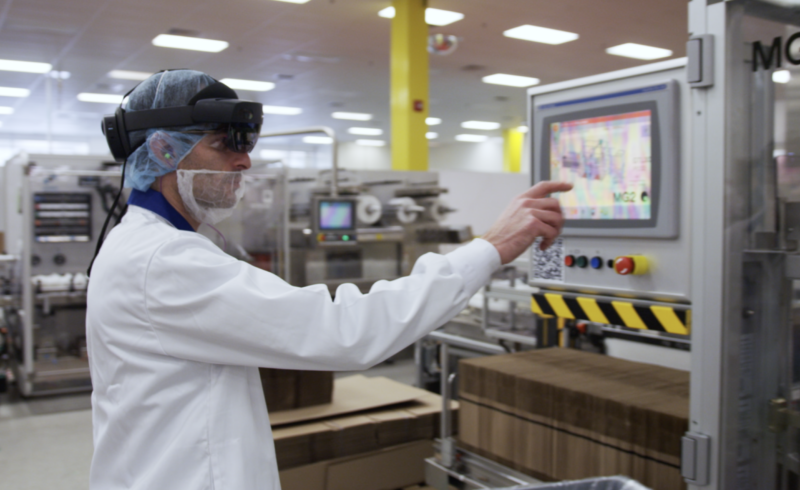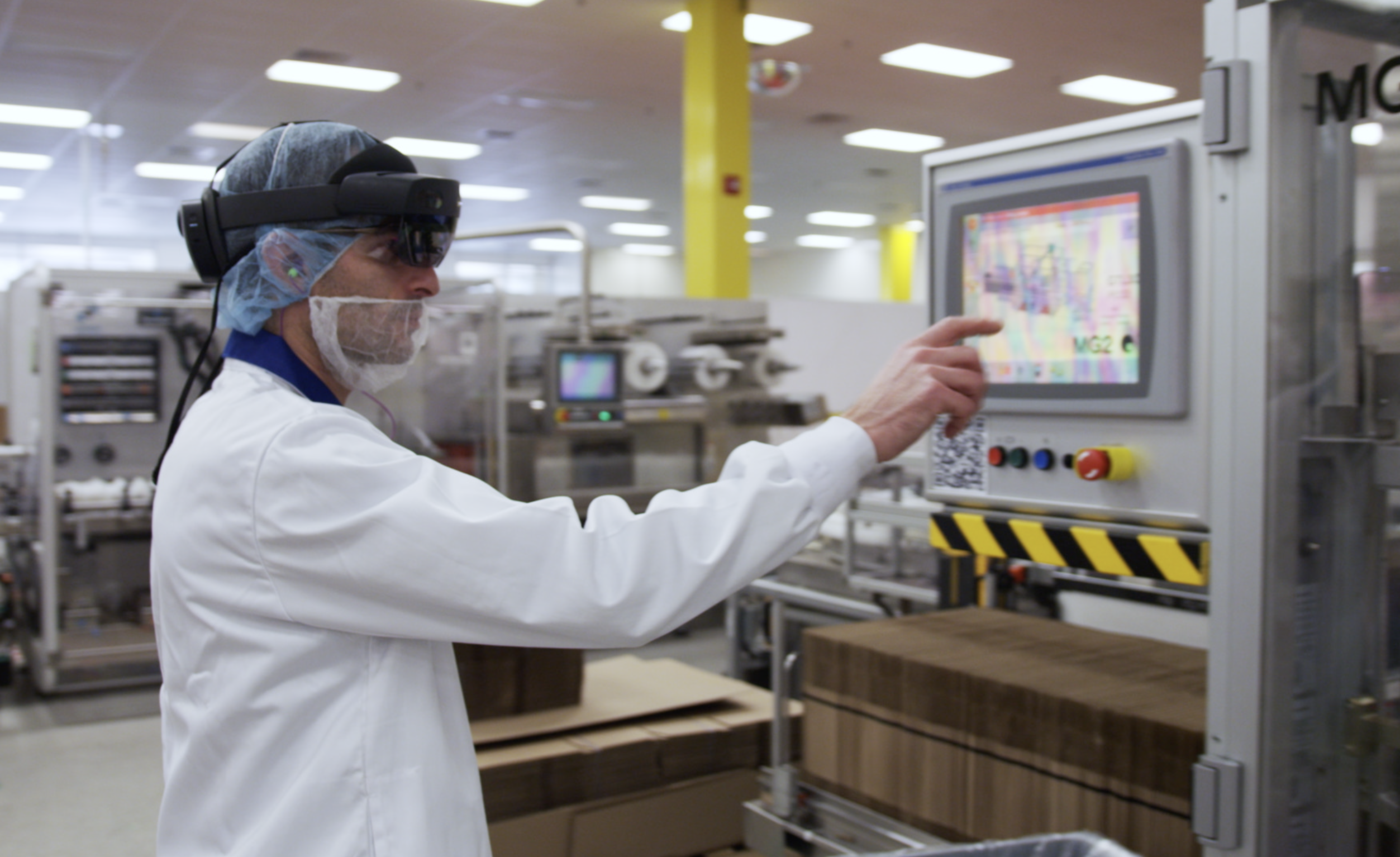Canadian startups secure $1.9M to pilot foodtech innovations


The Canadian Food Innovation Network (CFIN) is awarding $1,932,000 to eight foodtech projects through its FoodTech Next Program. These projects will pilot their innovations in real-world conditions to validate their market fit within the food sector. The combined value of the projects is just under $4M.
The 2024 FoodTech Next ultimate recipients are Index Biosystems, Harvest Moon Foods, CanDry Technologies, Real Life Robotics, RFINE Biomass Solutions, Maia Farms, Renaissance BioScience, and DeepSight Réalité Augmentée.
“At CFIN, we believe in the transformative power of innovation to pave the way for a more sustainable and resilient food sector. These industry pilots will not only validate the potential of Canadian foodtech innovations, but also ensure they meet the rigorous demands of practical application, driving meaningful advancements in the industry,” said Dana McCauley, CEO, Canadian Food Innovation Network.
Index Biosystems
Project title: BioTags for Advanced Food System Processing Analytics and Supply Chain Traceability
Pilot partner: A North American milling company
Funding: $249,999
Index Biosystems has developed BioTags, which are microscopic barcodes made from baker’s yeast. Applied to foods and ingredients, these BioTags offer orders of magnitude improvements to traceability and food safety. The Ontario foodtech company is developing a risk-management platform with BioTags at its core. This platform will enable food processors to collect insights into their raw materials journey through processing into finished products and beyond. Partnering with a North American milling company, these BioTags will be applied to grains and measured through processing to finished products. This generates molecular-level insights into production lines with the added benefit of always knowing where that product and even its ingredients came from when all else fails.
Harvest Moon Foods
Project title: Pilot Demonstration of Recombinant Casein Production and Applications
Pilot partner: Dairy manufacture and food ingredients companies
Funding: $244,469
Harvest Moon is the first company in Canada to produce animal-free casein through precision fermentation. Over the next 18 months, Harvest Moon will conduct a pilot-scale demonstration that will optimize their process, confirm the scalability of their system, and assess the characteristics and applications of their recombinant proteins within operational settings. The outcomes of this project will allow Harvest Moon to refine their process and product attributes, validate their economic model, advance their regulatory pathway, and build corporate partnerships to make their proteins widely available and create a more sustainable food system.
CanDry Technologies
Project title: Enhancing Canadian Agri-Food Sustainability Through Evolutionary Low-Temperature Dehydration
Pilot partner: Blueridge Produce, Susgrainable Health Foods, and the British Columbia Blueberry Council
Funding: $238,337
CanDry Technologies has successfully harnessed the synergies of vacuum, microwave, and infrared technologies to develop a pioneering patented dehydration system. Their low-temperature technology preserves nutrients and cuts dehydration costs, making it accessible to various industries. Equipped with a fully operational 15 kg/cycle prototype unit, CanDry has systematically tested and refined its technology within controlled laboratory settings but using industrial feedstocks. This project is dedicated to the precise customization of this prototype to meet the specific requirements of the Canadian agri-food sector, with their primary focus revolving around optimizing the dehydration process for berry products and spent grains.
Real Life Robotics
Project title: Robotic Short-haul Food Delivery in an Urban Environment
Pilot partner: Confidential
Funding: $242,127
In the current economic landscape, Canadian businesses grapple with increased customer demands for last-mile delivery, striving to balance the equation of profitability. This challenge intensifies within the food sector, where the dynamics of food delivery economics compound the struggles faced by restaurants dealing with escalating wages, elevated food costs, and pandemic-induced debt. Currently, most rely on third-party companies like Skip The Dishes, DoorDash, and Uber Eats, which charge 20 to 35 per cent commissions on each order, restrict customer data access, and struggle to maintain a consistently high-quality delivery experience for customers. Real Life Robotics, in response to these challenges, is on a mission to redefine the Canadian delivery landscape from “clicks to rips”. Enter BUBS, a robot that can navigate urban environments with minimal tele-supervision. In this project, the second-generation prototype is set to undergo testing in multiple Canadian cities. The aim is to not only make delivery viable for Canadian business owners, but to also bring affordability and convenience to the doorsteps of everyday Canadians.
DeepSight Réalité Augmentée
Project title: Deploying Augmented Reality Solutions for Industrial Training
Pilot partner: Groupe St-Hubert
Funding: $233,967
DeepSight leverages augmented reality to accelerate learning and training in the industrial sector. This project will deploy their technology in the food processing and food service sectors with their partner St-Hubert. Whether frontline workers are factory production teams performing changeovers on automated lines or technicians performing maintenance tasks, augmented reality-assisted training accelerates the onboarding of new employees and the development of experienced employees. The DeepSight platform allows you to create and consult 3D instruction guides that are precisely superimposed on the work environment. These holographic guides are used in operations using smart glasses and tablets to allow employees to quickly qualify and share knowledge across the company.
Renaissance BioScience
Project title: Revolutionizing Taste: Harnessing the Power of Yeast to Reduce Undesirable Flavours and Aromas in Plant-based Protein Products
Pilot partner: C-Merak and Big Mountain Foods
Funding: $232,239
Plant-based proteins are lower in saturated fats and better for the environment than traditional animal-based proteins. Plant-based flours provide higher levels of protein, fibre, minerals, and micronutrients than typical grain-based flours. However, these products inherently contain unpleasant flavour and odour compounds that limit consumer acceptance. Current methods to address this involve extensive processing or the use of flavour-masking additives, which can be costly, inefficient, and contradict consumer preferences. Renaissance BioScience addresses this challenge by applying their proprietary clean-label, non-GMO yeast technology to convert off-flavours in plant-based proteins to more acceptable neutral compounds, using natural fermentation. They have developed methods to identify key unwanted flavour compounds through chemical analysis and sensory evaluation and are collaborating with industrial partners to ensure efficacy in manufacturing settings. The goal is to increase the consumer appeal and versatility of plant-based proteins, while ensuring cost-effectiveness, environmental sustainability, and alignment with industry practices.
Maia Farms
Project title: Protein Technology to Improve Plant-based Foods: Operational Ingredient Testing
Pilot partner: Big Mountain Foods
Funding: $226,119
Plant-based food manufacturers face a shortage of quality texturized protein products (TPP). Big Mountain Foods and other Canadian plant-based brands are forced to outsource to the U.S. and Asia due to challenges in sourcing locally. Collaborating with the National Research Council of Canada and utilizing extrusion technology at the Saskatchewan Food Centre, Maia Farms will produce CanPro, a blended mushroom protein ingredient with higher protein density than meat and superior texture to TPP alternatives. Rigorous tests will be conducted, including protein content, hydration, colour, and microbial assessments. BMF will evaluate CanPro in its operational setting, addressing technical hurdles in hydration, pumping, mixing, and cooking to identify the ideal TPP for their recipes.
RFINE Biomass Solutions
Project title: Canadian Pre-Commercial Pilot Demonstration Project of Kaffika Process
Pilot partner: Regional and national coffee chains
Funding: $205,505
RFINE is set to conduct a 10-store commercial pilot demonstration of their Kaffika Drying Appliance in collaboration with a major national coffee chain. Following beta testing with five quick-service coffee vendors in RFINE’s Q1 2024, the pilot aims to showcase the appliance’s effectiveness in drying spent coffee grounds (SCG) to a food-grade state. This process involves backhauling SCG to a central location and converting it into food for both humans and animals. The resulting food ingredients will be utilized by project partners for both human foods and animal feed. RFINE’s offtake agreements with appropriate partners ensure the full circularity of their solution, demonstrating the transition from waste diversion to food production.
To date, 13 projects have secured $3M in funding through CFIN’s FoodTech Next Program. In addition to the funding, the FoodTech Next Program creates supportive innovation communities around each company to help their project succeed and move their business to scale readiness.
Across all programs, CFIN has awarded more than $19M to 65 Canadian foodtech projects.
Source: www.foodincanada.com

